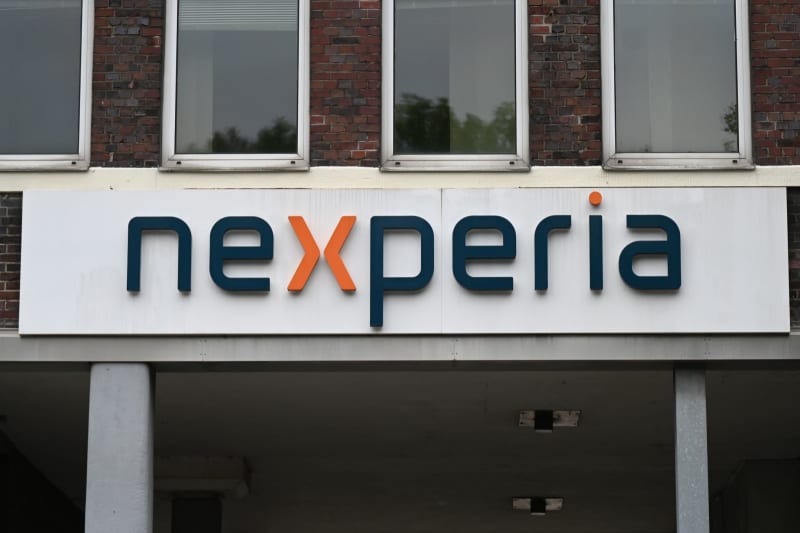The logo of the semiconductor manufacturer “Nexperia” hangs above the entrance to the company building. David Hammersen/dpa
Encouraging progress has been made in the dispute over chip deliveries from Nexperia, a Chinese-owned company based in the Netherlands that is key to the auto industry, the EU trade commissioner said on Saturday.
Maroš Šefčovič said the Chinese Ministry of Commerce had confirmed to the European Commission on Saturday that export procedures for Nexperia chips would be further simplified.
Exporters would be granted exemptions from licensing requirements if they declare the goods are intended for civilian purposes, he said.
“This measure takes effect immediately,” Šefčovič said in a statement posted on X.
Earlier on Saturday the Chinese Ministry of Commerce said it wanted more concessions from the Dutch government, saying the Netherlands had not yet taken any noticeable measures to prevent the violation of rights and interests of Chinese firms and to restore the stability of global supply chains.
The Hague should also stop interfering in company matters through administrative means, the Beijing ministry said.
China has agreed to a request by the Dutch Ministry of Economic Affairs to send representatives to China for consultations, the ministry added.
Cause of the dispute
On September 30, the Dutch government put Nexperia under state control due to concerns about its Chinese parent company Wingtech.
Beijing then halted exports of products from Nexperia factories in China, causing major concerns for European car manufacturers.
Nexperia primarily produces standard chips used in large quantities in the automotive industry and electronic devices.
Beijing had previously announced that it would allow exceptions for Nexperia exports under certain conditions. Some companies have already reported receiving approvals.
Šefčovič said the European Commission would remain in close contact with the Chinese and Dutch authorities to create a durable, stable and predictable framework that would ensure the full restoration of semiconductor flows.
“Such stability and predictability are essential for Europe’s industrial base, supporting its global competitiveness,” he said.
Prior to Šefčovič’s announcements, German Chancellor Friedrich Merz seemed hopeful about a resolution in comments in Brazil.
“It seems the way is now open for a resumption of deliveries,” he said on the sidelines of a leaders’ summit ahead of the COP30 climate talks in Belém. Merz said he had previously spoken again with the caretaker Dutch prime minister Dick Schoof about the issue.
